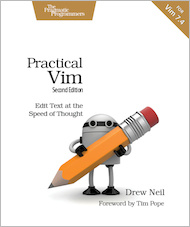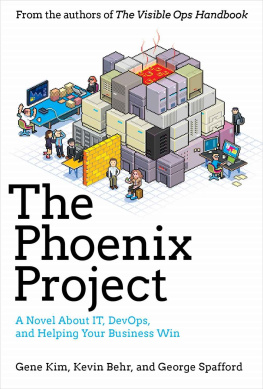Insights on Thomas C. Corley's Rich Habits
Insights from Chapter 1
#1
Phoenix was a failure as an insurance salesman. He could not even afford the discounted rates at the local community college, Brookline. He had to tell his son that they could not afford to send him to college.
#2
Phoenix was smoking a cigarette outside when he was approached by a man named Champ Dailey, who offered to help him. Phoenix went to his office on Monday, where he was given a business card.
#3
Phoenix was nervous about meeting with Champ Dailey, but when he walked into the office, he was shocked by the beauty of the place. The wood floors and oak-lined walls warmed the cavernous room, and numerous paintings provided splashes of color.
#4
Champ told Phoenix the story of how he had been given ten laws by J. C. Jobs. He was told to live these ten principles for thirty days, and meet back with him after the thirty days had passed. His situation improved dramatically.
#5
The Rich Habits Training Program is a more comprehensive process than just meeting with J. C. It involves training individuals, such as Phoenix, in following the Rich Habits. The most valuable thing in the whole building is this simple scrap of paper now in Phoenixs possession.
Insights from Chapter 2
#1
Dees absences were causing a problem at work. Her coworkers described her as a hardworking and conscientious employee, but also as lazy, neglectful, and tardy. The root cause, many suspected, were family issues.
#2
John had to fire Dee, who was very reluctant to do so. She had a difficult time adjusting to the new schedule, and eventually broke it by leaving work early on several occasions. When John confronted her about it, she explained that she was just too humiliated to ask for the concessions he was offering.
#3
Dee met with Jan, who shared ten principles with her that helped her turn her life around. She went from unemployed to the CEO of the company that now employs her. Following these laws was not easy, but she did it anyway.
Insights from Chapter 3
#1
Herb was a car dealer who had been in the business for about twenty years. He had grown tired of traveling to his Mitsubishi franchise in Rhode Island every month to review the month-end financials and create the budget for the following month. He was looking for a buyer.
#2
Herbs car dealership was not doing well. He had trouble adjusting to his expanded responsibilities as a owner, and his cash flow problems began to occupy more of his time. He visited banks more frequently to add new lines of credit, which exacerbated his cash-flow problems.
#3
Herb, a car salesman, was unable to help the woman who came into his dealership looking for a car for her daughter. He explained that after this month, they would no longer be in business.
#4
A woman named Susan Changer helped Herb get into the next training session. She told him that she had gone through a bankruptcy a long time ago, and that she was just a person looking in a very old mirror. She wanted to help him.
Insights from Chapter 4
#1
The accountant, whose wife had been diagnosed with cervical intraepithelial neoplasia, a disease that requires surgery, dropped a red rose on to the casket below. With that final act, the crowd began to disperse and the accountant was alone with his three young children, staring mindlessly into the open grave.
#2
The accountant, after his wife died, began to ask himself questions to better understand his clients. He created a list of questions to ask his successful clients in an effort to find out what they did that he didnt. The answers he received from his successful clients were different from the answers he received from his unsuccessful clients.
#3
The accountant developed a program based on his Rich Habits that he could share with his clients. He gave it to the man who had been struggling with cash flow problems, and he was able to secure the additional financing for free.
Insights from Chapter 5
#1
There are four types of luck: random good luck, random bad luck, opportunity luck, and detrimental luck. To become successful, you need to attract the right kind of luck. The Rich Habits magnetizes opportunity luck.
#2
Good daily habits are the foundation of success. Successful people have few bad daily habits, while unsuccessful people have many bad habits and few good ones. To be successful, you must identify your strengths and weaknesses.
#3
You should also write down all of the positive things you did that day, as well as the negative things you didn't do. The point is to focus on the positive, because if you only focus on the negative, it will destroy you.
#4
Successful people are goal-oriented. They create goals all the time. Unsuccessful people are not goal-oriented. They allow the distractions of daily living to affect their ability to perform their duties at work.
#5
Before beginning each day, compile a Daily Goal/To-do List. Only list those things that have a realistic probability of being completed that day. Prioritize this list and set a specific time in which to tackle each item.
#6
At the beginning of each month, list monthly goals. These are goals with a realistic probability of being reached by the end of the month. Break down each goal into tasks or steps.
#7
A vision board is a picture of long-term goals that you keep in sight. It may be a picture of the house you desire to buy, a picture of the business you hope to own one day, or a picture of the type of place you hope to retire to one day.
#8
Successful people are constantly improving themselves. They read industry magazines and technical material specific to their profession or trade. They become students of their industry, profession, or trade, and keep up with changes that occur.
#9
Successful people make a concerted effort to eat right and exercise every day. They do not binge or overindulge in food or drink, and they manage their consumption of food. Unsuccessful people have no control over their eating habits, and they constantly search for the latest and greatest quick-fix diet.
#10
Do not confuse monitoring and managing food consumption with dieting. Diets do not work in managing weight in the long term because they are too restrictive and take the fun out of life. Manage the consumption of food, but do not starve yourself or never eat special treats again.
#11
Successful people are constantly networking and building relationships with others. They do not waste their time developing and nurturing relationships with individuals who are only out for themselves. They cut all ties that are harmful or destructive, and stay clear of individuals who are perpetually in a state of turmoil.
#12
The most basic contact management system provides a process that reminds you of a contacts birthday so you can reach out to them to wish them a happy birthday. You can also group your contacts by category, such as tennis contacts, golf contacts, bowling contacts, club contacts, neighbor contacts, friend John Smiths friends, and so on.
#13
To live in moderation means to live a balanced life. Successful people avoid excesses, wild emotional swings, addictions, obsessions, binging, starvation, extravagances, and fanatical behavior. They keep their thoughts and emotions on a short leash.
#14
Successful people are positive, enthusiastic, energetic, and well-balanced individuals. They feel powerful, in control, confident, and energized. They are disciples of Rich Thinking. When they talk to themselves, their words are uplifting, not critical.
#15













